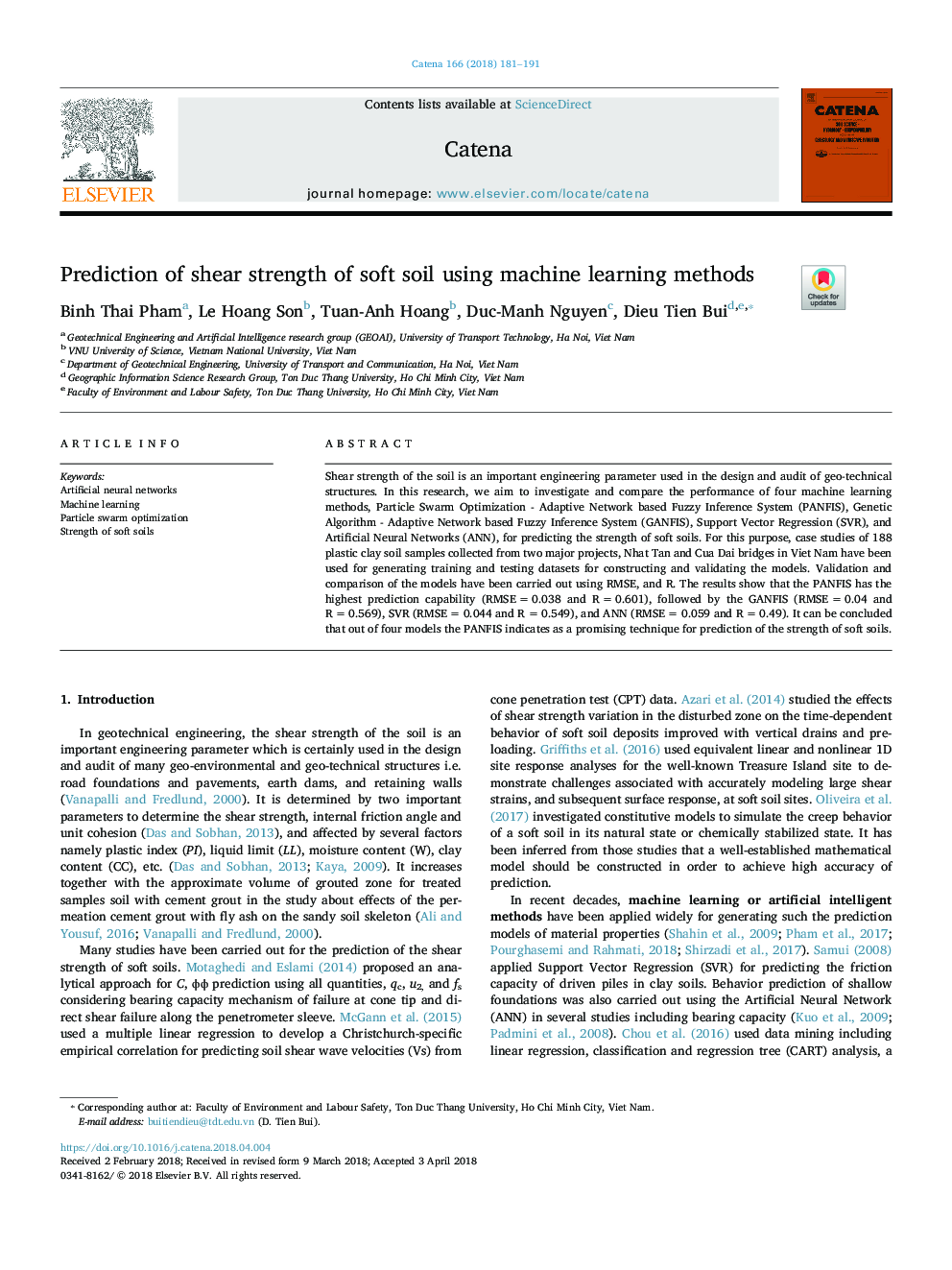| Article ID | Journal | Published Year | Pages | File Type |
|---|---|---|---|---|
| 8893538 | CATENA | 2018 | 11 Pages |
Abstract
Shear strength of the soil is an important engineering parameter used in the design and audit of geo-technical structures. In this research, we aim to investigate and compare the performance of four machine learning methods, Particle Swarm Optimization - Adaptive Network based Fuzzy Inference System (PANFIS), Genetic Algorithm - Adaptive Network based Fuzzy Inference System (GANFIS), Support Vector Regression (SVR), and Artificial Neural Networks (ANN), for predicting the strength of soft soils. For this purpose, case studies of 188 plastic clay soil samples collected from two major projects, Nhat Tan and Cua Dai bridges in Viet Nam have been used for generating training and testing datasets for constructing and validating the models. Validation and comparison of the models have been carried out using RMSE, and R. The results show that the PANFIS has the highest prediction capability (RMSEâ¯=â¯0.038 and Râ¯=â¯0.601), followed by the GANFIS (RMSEâ¯=â¯0.04 and Râ¯=â¯0.569), SVR (RMSEâ¯=â¯0.044 and Râ¯=â¯0.549), and ANN (RMSEâ¯=â¯0.059 and Râ¯=â¯0.49). It can be concluded that out of four models the PANFIS indicates as a promising technique for prediction of the strength of soft soils.
Related Topics
Physical Sciences and Engineering
Earth and Planetary Sciences
Earth-Surface Processes
Authors
Binh Thai Pham, Le Hoang Son, Tuan-Anh Hoang, Duc-Manh Nguyen, Dieu Tien Bui,
